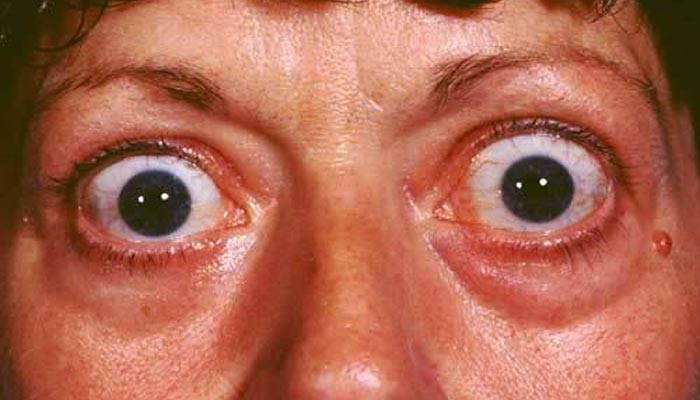
Graves disease is an autoimmune disease characterised by hyperthyroidism because of thyroid-stimulating immunoglobulins activating TSH receptors, enlarging the thyroid and raising hormone production.
It’s associated with other autoimmune diseases such as type 1 diabetes, lupus, and more.
Ultrasensitive TSH are considered the best tests that accurately measure the level of TSH in your blood. Treatment focuses on treating thyrotoxicosis. Immune checkpoint inhibitors in cancer therapy lead to Graves disease as an adverse effect.
Signs and symptoms of Graves disease
Here are several signs and symptoms of Graves disease:
- High basal metabolic rate, and weight loss despite increase in or similar appetite.
- Increased sweating, vitiligo, alopecia, and more.
- Conjunctival irritation, lid lag, lid retraction, visual loss in severe optic nerve involvement.
- Enlargement of thyroid gland; thyroid nodules may be palpable, which can be assessed via examination.
- Gynecomastia, tachypnea; tachycardia, S3, S4 heart sounds; ectopic beats, arrhythmias
Treatment of Graves disease
Antithyroid drugs are administered to inhibit the synthesis of thyroid hormones or by treatment with radioactive iodine.
Radioactive iodine is the most commonly used therapy for Graves disease.
Its indications over drugs include an enlarged thyroid gland, several symptoms of thyrotoxicosis, increased levels of thyroxine, and more.
In severe cases, Thyroidectomy is only recommended in the presence of a thyroid nodule that may indicate carcinoma or in patients less than age 5 years.








